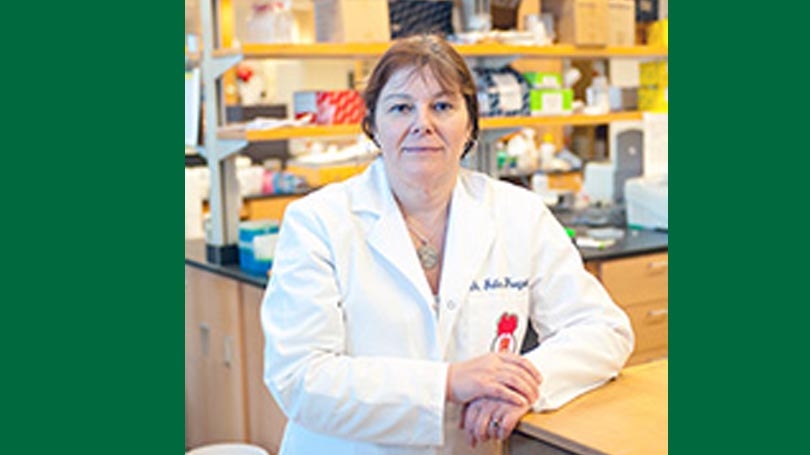
Dr. Julia Frugoli (Biological Sciences ‘98) is an Alumni Distinguished Professor at Clemson University.
Dr. Julia Frugoli (Biological Sciences ‘98) was recently named an Alumni Distinguished Professor during convocation at Clemson University—an honor that recognizes teaching excellence. Frugoli attributes her passion for teaching to outstanding academic mentors throughout her career—citing the one-on-one faculty interactions were an important early factor that pushed her towards teaching. As a result, Frugoli works hard to pay-it-forward mentoring her students. To date, thirty-five undergraduate students have worked in Frugoli’s laboratory at Clemson, and nearly all have decided to pursue graduate or professional school, a fact that makes Frugoli proud.
When Frugoli arrived at Dartmouth, plant biology was not something she immediately thought to study. However, gardening was a hobby Frugoli had learned from her grandparents that had become a major part of her life. Once Frugoli realized that she could combine her love for gardening with her passion for discovery, plant biology was a logical choice. Even now, Frugoli uses her garden to contemplate experiments and brainstorm ideas. At Dartmouth, Frugoli used technology that allowed her to chart the locations of specific genes in Arabidopsis thaliana. Gene mapping helped Frugoli identify the catalase family guiding her thesis work with professor Rob McClung. The genes Frugoli discovered encode pieces of molecular machinery that assemble in different combinations to cleverly control multiple cellular processes. For instance, one combination keeps the cell healthy by neutralizing toxic photosynthesis bi-products.
Sequence-mapping experiments can be incorporated into both the highest and lowest points of Frugoli’s graduate career. While the results of these experiments provide powerful spatial information, creating genetic maps tied to DNA sequences was a tedious process, and somewhat comparable to reading Moby Dick in search for a particular sentence. At her lowest point, Frugoli realized the DNA sequences she was analyzing in one experiment were contaminated, using six months of valuable time. Whereas at her highest point, Frugoli discovered the genes she was hunting for mapped close together, propelling her project forward rapidly.
Now as a Clemson professor, Frugoli’s research has expanded to the legume plant family, which generates one-third of human nutrition on the planet. While nitrogen makes-up 70% of the air we breathe, it is present in a form most organisms (including humans) cannot readily access. Legumes solve this problem by partnering with certain bacteria to convert nitrogen into a useable form. Frugoli’s laboratory is working to understand the regulation of this process and improve agriculture production using funding from the National Science Foundation.